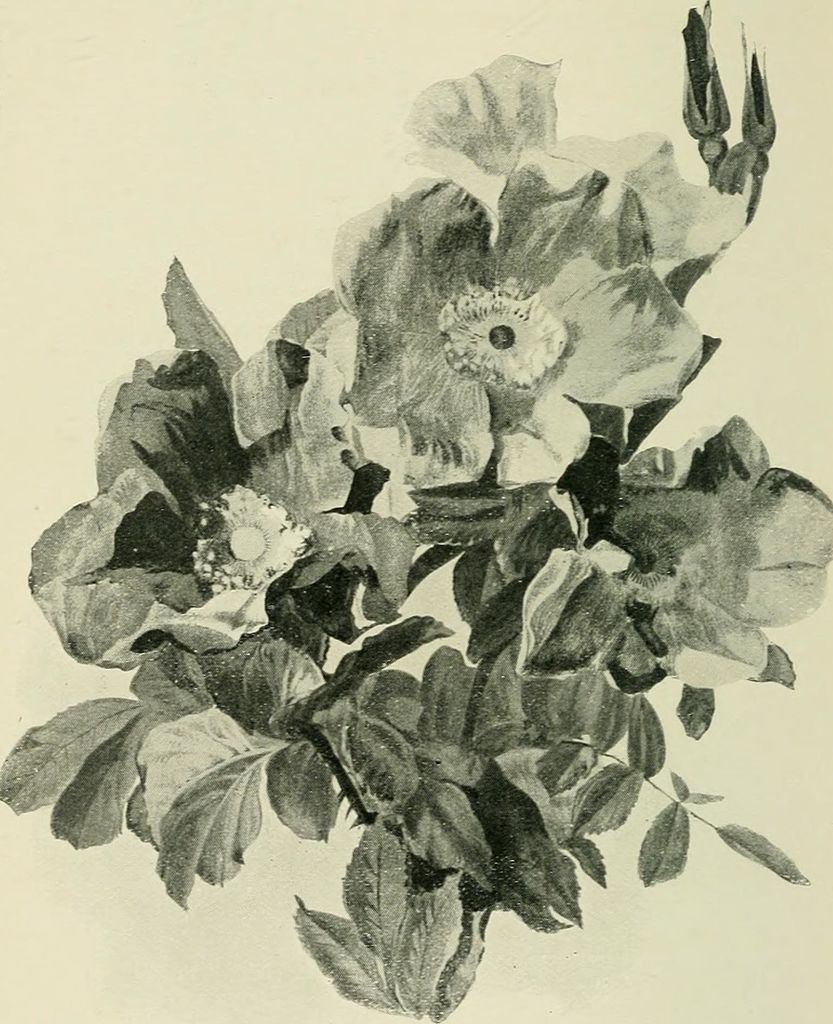
Drawn by Antoine Berjon from the Harris Brisbane Dick Fund, 1928
From the time I could read, I was reading Jewish stories. I grew up in an observant Conservative Jewish home in Miami, where Jewish learning was strongly encouraged. I attended a Jewish day school and belonged to a young, tight-knit synagogue with a dynamic rabbi, whom I admired. My high school job was helping kids prepare for their Bar Mitzvahs. In the summers I attended Camp Ramah, which is the camping arm of the Conservative movement. There, I eagerly took part in Jewish practice and study. Naturally, these childhood experiences played an important role in forming my world view.
Many of the characters in my debut story collection, The Usual Uncertainties, are identifiably Jewish. In the first story, “The White Spot,” the two main characters, a doctor and his son, are the offspring of Hungarian-Jewish Holocaust survivors. In the third story, “Roger’s Square Dance Bar Mitzvah,” a 13-year-old boy embarks on a path toward becoming a religious Jew while his family members are mystified by his level of observance. In the fourth story, “Apples and Oranges,” which takes place in 1952, a small-time Jewish American businessman finds unwanted Gentile babies in the countryside outside of Philadelphia and locates Jewish homes for them in the city, thus replenishing, to a tiny degree, the world’s Jewish population after the Holocaust.
There are stories in the collection in which none of the characters is identified as Jewish. That doesn’t mean that these characters are not Jewish. It just means that I didn’t think the matter was significant enough to mention. “[Before she left, she gave him]” is such a story. This one-page story, excerpted below, focuses on a couple. The woman is an artist, who periodically takes leave of the man, who is not. Our sense is that her vocation is making work. His vocation, on the other hand, “is, to a great extent, her.” What matters about the two of them is their relationship to one another, which the story maps in highly compressed fashion.
I have noticed over the years that I have a different response to Jewish stories than I do to other kinds of stories. It’s not that I always prefer them, although I do read a lot of them. But it’s as if a familiar, ancestral language is being used, a language that I grew up speaking and am pleased to speak to this day. Here I am talking about explicitly Jewish stories, as well as stories in which the writer doesn’t mention that his characters are Jewish, or in which there aren’t any Jewish characters, and even stories in which the writer doesn’t identify as Jewish herself but is. It seems to me that there is a varied, shared world view that comes with being Jewish, even if the writer repudiates Jewish identity altogether.
My own feelings of Jewish identity are strong. I scrutinize them often. When I invent a character — Jewish, not Jewish, or not named — I do so because something in me is deeply interested in that character. I don’t set out to create Jewish characters. I just find, over and again, that I want to.

[Before she left, she gave him]
Before she left, she gave him three little yellow wild roses. “Where’d you get these?” he asked, and she said, “Found them in a field. Behind the Sandovals’ property.” Now the petals had dried out but they weren’t so dry that they didn’t stick to everything in their house — the desk, the rug, the handle of the sauté pan, the kitchen counter, the furnace. She dealt with the separations better than he did. Of course, she was always the one leaving. Separating was almost her nature. And yet he, who craved frequent physical touch, had always liked this about her. How isolated she could make herself. What it was to yearn for her, to long. For days after she left, he could feel the touch of his fingers on her backbone, the sensation of her hair brushing his cheek.
He peeled all the petals off of everything they had stuck to and put them in a small bowl in the kitchen window. This was the digging in. It was going to be email now and phone cards for a long while. They weren’t married, and he doesn’t know what she would say if he asked her. He’s not going to ask her.
He has friends in town, which helps. Unlike her, he has no vocation. His vocation, to a great extent, is her. He has helped build a studio behind the house where she can do her work. He performs the tasks she prefers not to do herself. He takes pride in her. He no longer worries, as he did when they first met, that she does not regard him as an equal. Nor does he worry that if his illness returns, she will abandon him. She makes him wonderful, simple gifts. She always comes back. Things have never been better.
Jonathan Blum is the author of two books of fiction: LAST WORD (Rescue Press, 2013), a novella, and THE USUAL UNCERTAINTIES: STORIES (Rescue Press, 2019), a story collection. Blum grew up in Miami and graduated from UCLA and the Iowa Writers’ Workshop. His short stories have appeared in Angels Flight-literary west, The Carolina Quarterly, Gulf Coast, Kenyon Review, Playboy, Sonora Review, Shanxi Literature, among others. He has taught fiction writing at The University of Iowa, Drew University, and the Iowa Summer Writing Festival, and is the recipient of a Michener-Copernicus Society of America Award, a Hawthornden fellowship in Scotland, and a grant from the Helene Wurlitzer Foundation. He has also been a guest writer at the Tianjin Binhai New Area International Writing Program in China. He lives in Los Angeles.